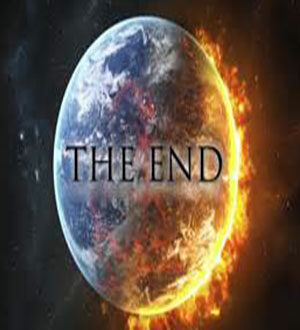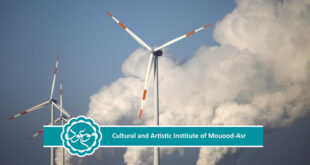My title is ambitious and ambiguous: revolution and resistance (which tend to be associated with left politics), revelation and redemption (typically associated with right-wing religion), all framed by a warning about ecological collapse. My goal is to connect these concepts to support an argument for a radical political theology — let me add to the ambiguity here — that can help us claim our power at the moment when we are more powerless than ever, and identify the sources of hope when there is no hope.
First, I realize that the term “radical political theology” may be annoying. Some people will dislike “radical” and prefer a more pragmatic approach. Others will argue that theology shouldn’t be political. Still others will want nothing to do with theology of any kind. At various times in my life, I would have offered all of those objections. Today, I think a politics without a theology is dangerous, a theology without a politics is irrelevant, and radical is realistic.
By politics, I don’t mean we need to pretend to have worked out a traditional political program that will lead us to the land of milk and honey; instead, I’m merely suggesting that we always foreground the basic struggle for power in whatever work we do at whatever level. By theology, I don’t mean that we need to believe in supernatural forces that will lead us to a land of milk and honey; instead, I’m merely pointing out that we all construct a worldview that is not reducible to evidence and logic. In politics and theology, it’s important to be clear about what we know, and even more important to recognize what we don’t know, what we can’t know, what is instinct and emotion.
And all this needs to be radical — not in the self-indulgent “more radical than thou” style that crops up now and then on the left — but rather in the sense of an unflinching honesty about that unjust and unsustainable nature of the systems in which we live. Whatever pragmatic steps we may decide to take in the world, they should be based on radical analysis if they are to be realistic.
Revolution
I’m not interested in speculating about future revolutions, I don’t take seriously anyone who predicts a coming revolution in the United States, and I doubt that the traditional concept of a revolution is even relevant today — the dramatic changes that lie ahead likely won’t arrive that way. Rather than dream of revolutions to come, it’s more productive to think about the revolutions that brought us to this moment.
Ask an audience to name the three most important revolutions in human history, and the most common answers are the American, French, and Russian. But to understand our current situation, the better answer is the agricultural, industrial, and delusional revolutions. While those national revolutions had dramatic effects, not only on those nations but on the course of the history of the past two centuries, these other revolutions not only reshaped the lives of every human but remade the world in ways that may spell the end of human history as we know it. The agricultural, industrial, and delusional revolutions were — to use a current political cliché — real game-changers.
The agricultural revolution started about 10,000 years ago when a gathering-hunting species discovered how to cultivate plants for food and domesticate animals. Two crucial things resulted, one political and one ecological. Politically, the ability to stockpile food made possible concentrations of power and resulting hierarchies that were foreign to band-level gathering-hunting societies, which were highly egalitarian and based on cooperation. This is not to say that humans were not capable of doing bad things to each other prior to agriculture, but only that large-scale institutionalized oppression has its roots in agriculture. We need not romanticize pre-agricultural life but simply recognize that it was organized in far more egalitarian fashion than what we call “civilization.”
Ecologically, the invention of agriculture kicked off an intensive human assault on natural systems. While gathering-hunting humans were capable of damaging a local ecosystem in limited ways, the large-scale destruction we cope with today has its origins in agriculture, in the way humans started exhausting the energy-rich carbon of the planet, first in soil. Human agricultural practices have varied over time and place but have never been sustainable over the long term. There are better and worse farming practices, but soil erosion has been a consistent feature of agriculture, which makes it the first step in the entrenchment of an unsustainable human economy based on extraction.
We are trained to think that advances in technology constitute progress, but the post-World War II “advances” in oil-based industrial agriculture have accelerated the ecological destruction. Soil from large monoculture fields drenched in petrochemicals not only continues to erode but also threatens groundwater supplies and contributes to dead zones in oceans. While it’s true that this industrial agriculture has produced tremendous yield increases during the last century, no one has come up with a sustainable system for perpetuating that kind of agricultural productivity. Those high yields mask what Wes Jackson has called “the failure of success”: Production remains high while the health of the soil continues to decline dramatically. [1] That kind of “success” guarantees the inevitable collapse of the system. We have less soil that is more degraded, with no technological substitute for healthy soil; we are exhausting and contaminating groundwater; and we are dependent on an agriculture tied to a fuel source that is running out.
That industrialization of agriculture was made possible, of course, by the larger industrial revolution that began in the last half of the 18th century in Great Britain, which intensified the magnitude of the human assault on ecosystems and humans assaults on each other. This revolution unleashed the concentrated energy of coal, oil, and natural gas to run the new steam engine and machines in textile manufacturing that dramatically increased productivity. That energy — harnessed by the predatory capitalist economic system that was beginning to dominate the planet — not only eventually transformed all manufacturing, transportation, and communication, but disrupted social relations. People were pushed off the land, out of communities, and into cities that grew rapidly, often without planning. Traditional ways of knowing and living were destroyed, by force or by the allure of affluence. World population soared from about 1 billion in 1800 to the current 7 billion, far beyond the long-term carrying capacity of the planet.
This move from a sun-powered and muscle-based world to a fossil fuel-powered and machine-based world has produced unparalleled material comfort for some. Whatever one thinks of the effect of such levels of comfort on human well-being — in my view, the effect has been mixed at best [2] — the processes that produce the comfort are destroying the capacity of the ecosystem to sustain human life as we know it into the future, and in the present those comforts are not distributed in a fashion that is consistent with any meaningful conception of justice. In short, our world is unsustainable and unjust — the way we live is in direct conflict with common sense and the ethical principles on which we claim to base our lives. How is that possible? Enter the third revolution.
The delusional revolution is my term for the development of sophisticated propaganda techniques in the 20th century (especially a highly emotive, image-based advertising/marketing system) that have produced in the bulk of the population (especially in First World societies) a distinctly delusional state of being. Although any person or group can employ these techniques, wealthy individuals and corporations — and their representatives in government — take advantage of their disproportionate share of resources to flood the culture with their stories that reinforce their dominance. Journalism and education, idealized as spaces for rationally based truth-telling, sometimes provide a counter to those propaganda systems, but just as often are co-opted by the powerful forces behind them.
 Mouood Mouood English Edition
Mouood Mouood English Edition




